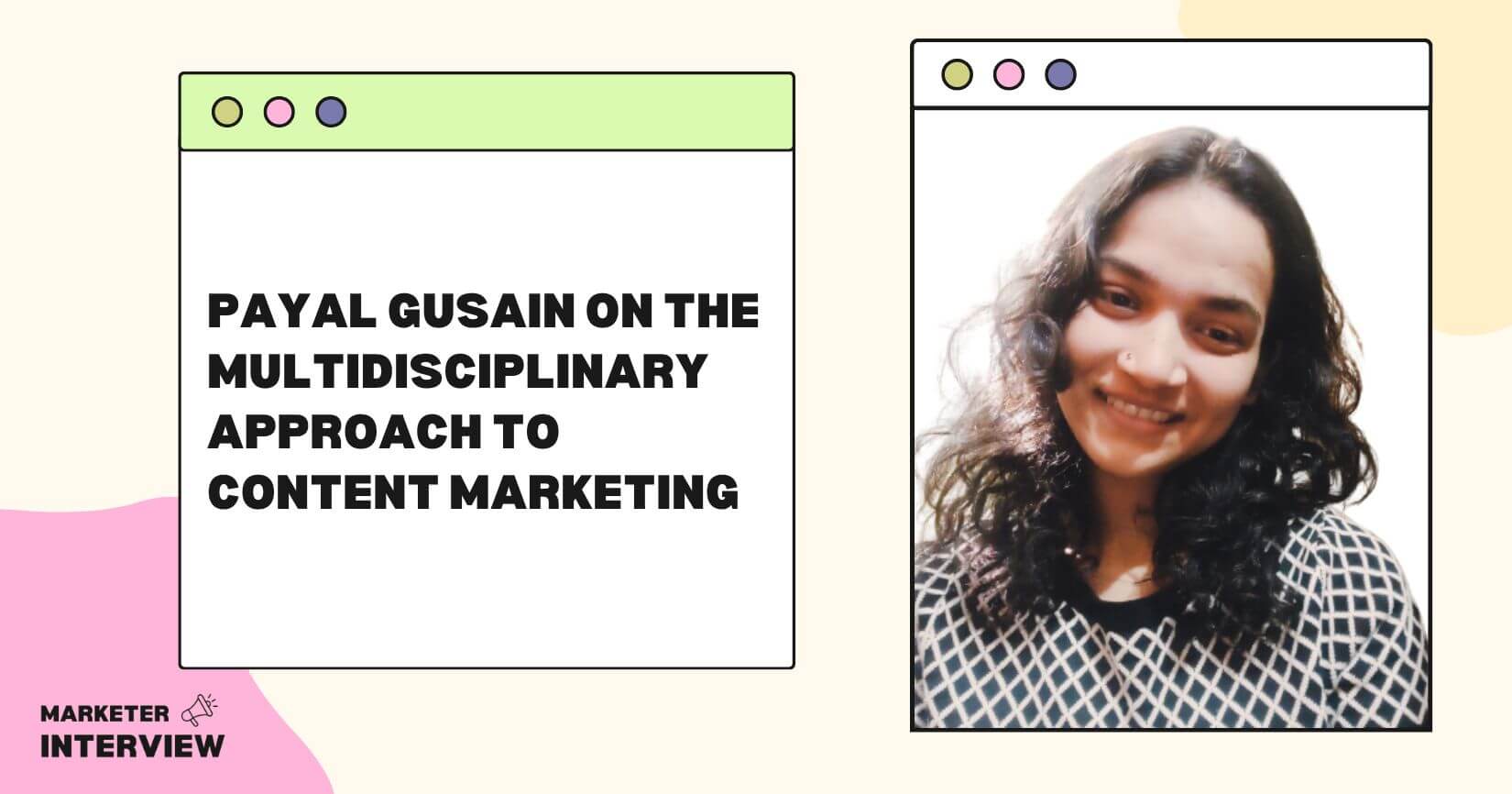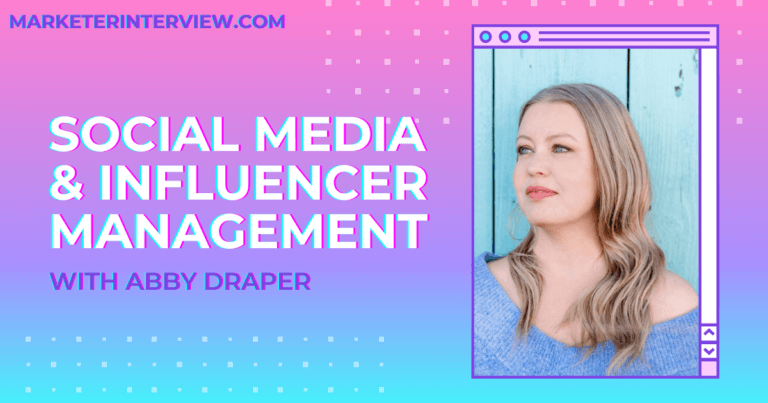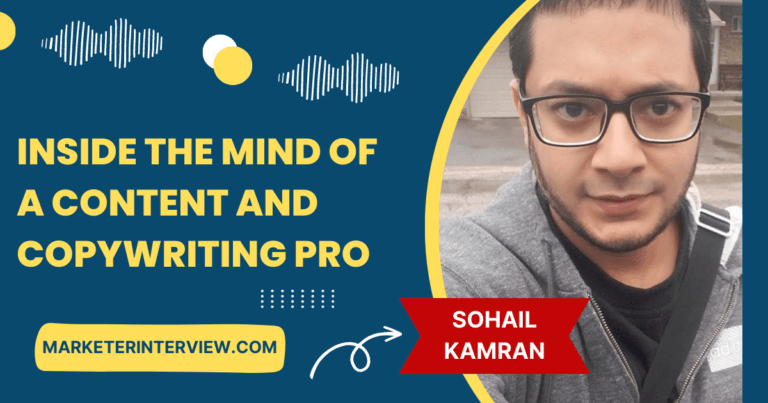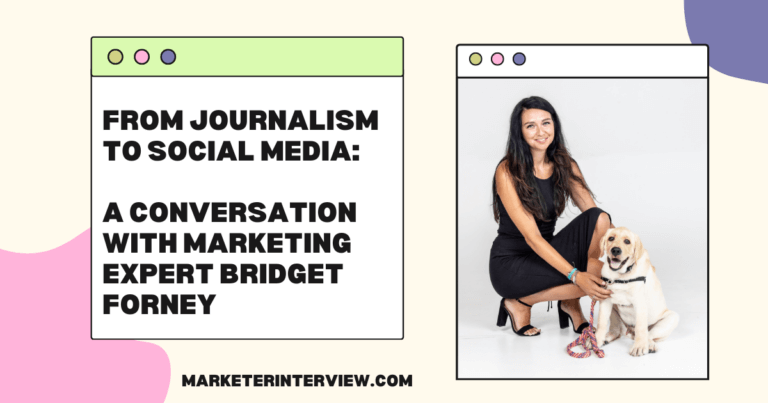Payal Gusain on the Multidisciplinary Approach to Content Marketing
Welcome to Marketer Interview, where we delve into the careers of successful marketers to learn from their experiences and insights.
Today, we’re excited to interview Payal Gusain, Growth Head at Ukti, a content writing agency.
Payal has a multidisciplinary approach to content and believes in exploring all types of writing instead of niching down.
Let’s dive in and learn about her career journey, her expertise in content, and the tools she uses for her job.
Contents
- 1 Can you tell us about your career journey and how you got into marketing?
- 2 What’s your philosophy when it comes to creating content?
- 3 How do you come up with new content ideas?
- 4 Can you give an example of a successful content marketing campaign you have executed?
- 5 How do you measure the success of your content marketing efforts?
- 6 How do you ensure that your content resonates with your target audience?
- 7 Can you share your process for developing a content strategy?
- 8 How do you stay up-to-date with the latest trends and changes in the content marketing industry?
- 9 What are some of the most essential tools and software you use for your job?
- 10 What advice would you give someone just starting their career in content marketing?
Can you tell us about your career journey and how you got into marketing?
The writing was always my forte, and I’d wanted to explore it in a professional setting for a long time. That’s how I started working as a Content Creator at Ukti, a content writing agency for B2B + SaaS companies.
Four months into the job, I’d already started handling client projects, editing content, and training new hires. I went from a Content Creator to a Sr. Content Creator to Operations Head and Growth Head at Ukti in three years.
Over those years, I got to work with some stellar professionals and create content across industries and niches. And somewhere along the way, it hit me, and I started seeing content as a marketing function.
Then, there was no looking back. I taught myself everything I know about content marketing today. Still, I also lucked out and found a mentor in Ukti’s founder, Deepika Pundora, who let me experiment and gave wings to my craziest ideas.
What’s your philosophy when it comes to creating content?
It should include a) sufficient information, b) should be actionable, and c) always give readers something to think about or something to do once they’ve finished reading.
If the content ever falls short of meeting the above three criteria, it’s simply not going to meet the goals you want to be met.
How do you come up with new content ideas?
I’m always snooping around social media, bookmarking successful playbooks, and listening to podcasts and other resources. So, ideas are constantly marinating in my head. It’s just a matter of picking the right idea from the bunch and aligning it with the goals I want to achieve.
The other two methods I swear by are social listening and sales calls, especially when creating sales collaterals or content with heavy buying intent.
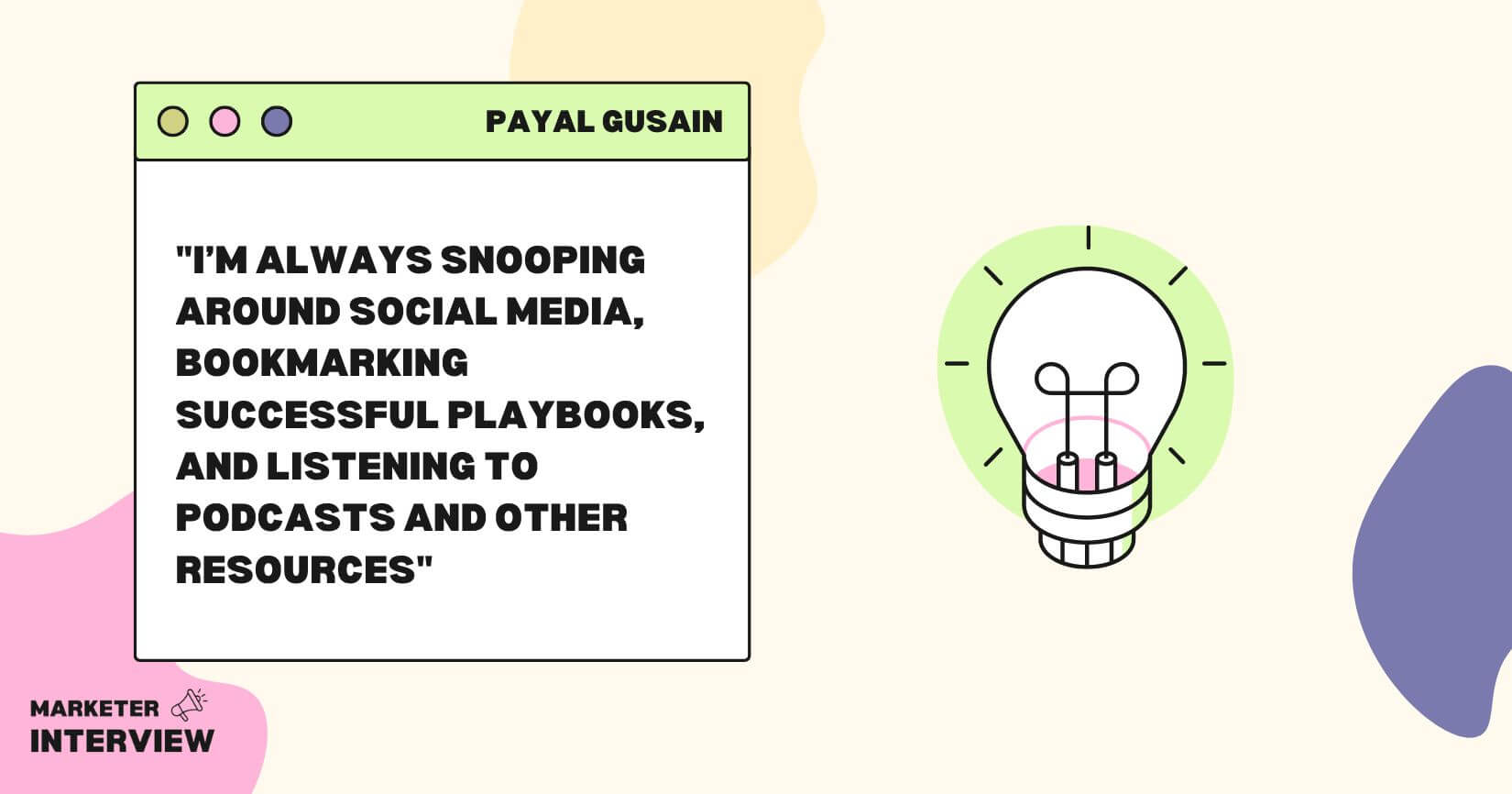
Can you give an example of a successful content marketing campaign you have executed?
When we started the Ukti blog, we knew we were walking on foot on a highway while everyone else was zooming ahead of us in sports cars. As a small team comprising ten people, we were no match for our competitors with big budgets and full-time SEO teams.
But we knew we could bring something new to the table. So for the first couple of months, we targeted low-competition, high-traffic keywords to score a ranking on page 1.
And surprisingly, along with good positions on SERPs, we bagged two featured snippets. They brought us massive traffic early on.
At the same time, we were also creating topical content and covering trending topics on the blog and then repurposing them for socials like LinkedIn, Medium, and Quora to get more referral traffic.
I wanted to focus on distributing and promoting content as much as I did on creating and publishing content. We also recycled and reused whatever juice we could extract from month-old content.
This made all the difference because we recorded 1.1% CTR, over 35k impressions over six months, and grew our LinkedIn followers to 2k.
How do you measure the success of your content marketing efforts?
Before starting any campaign, I always set out with a clear, quantifiable goal. It’s usually written down and documented so all participants are on the same page.
To measure content performance, I like to follow the 1-1-1 rule. I’ll check the analytics one month into the campaign to see if the growth is in the right direction. If not, I switch tactics and restart.
This goes on for three months before I decide whether to continue the campaign. And if everything goes as planned and we’re hitting our goal and exceeding the expected outcomes, I keep it running.
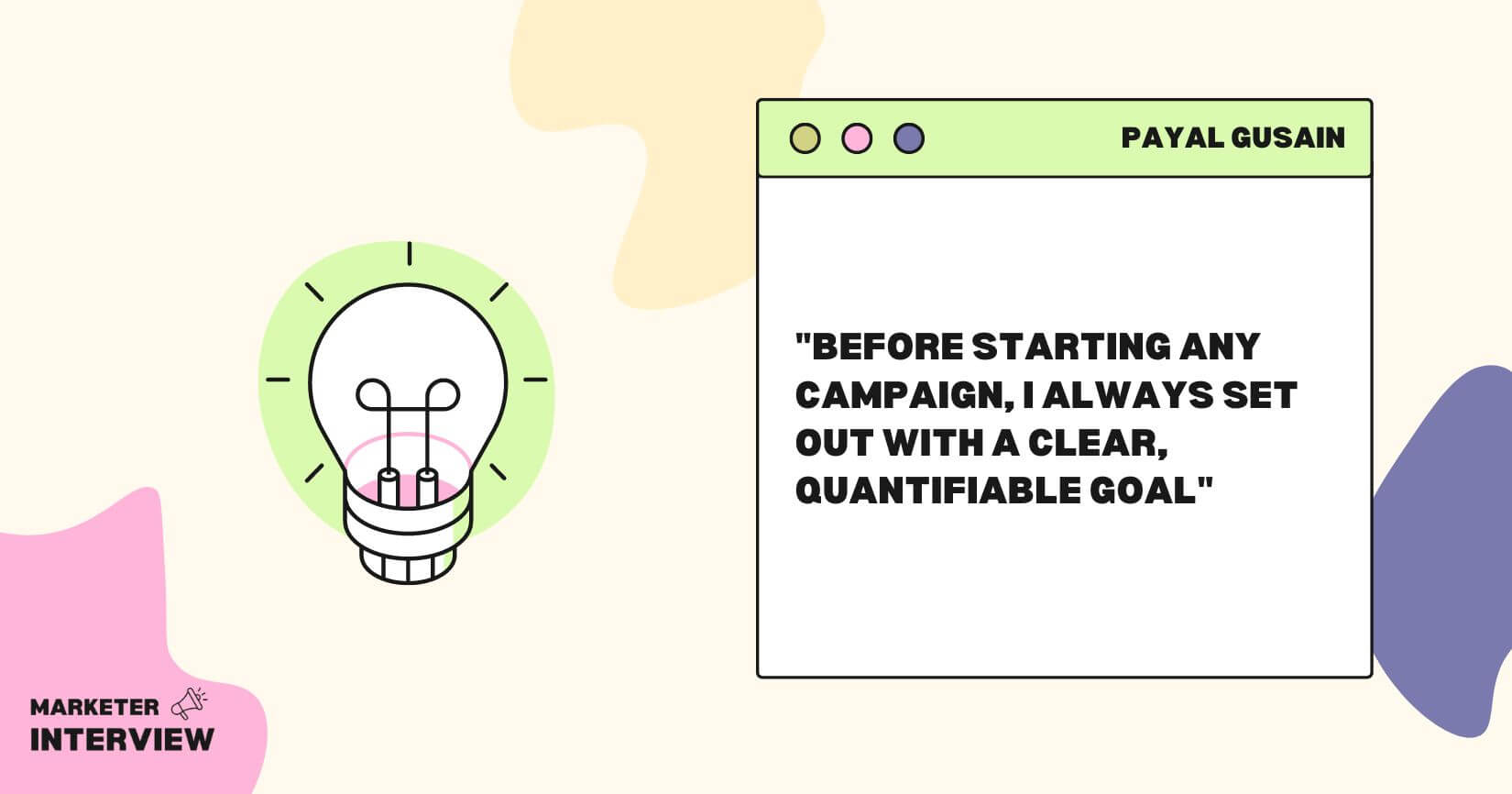
How do you ensure that your content resonates with your target audience?
Firstly, you must choose a relevant topic to spark conversations among your target audience. If they want to talk about GPT-4 and how it will makeover the content industry, you can’t post content about others and expect it to get the desired reaction.
Secondly, you give them information in the format they find friendly, on a channel they like to spend time on, and in the language, they speak in terms of tonality and style.
It starts with identifying a content gap. This is where I conduct audience, industry, and competitor research.
Once I’ve identified a gap we can fill well, I start looking for examples within the content industry or across complementary businesses.
I don’t believe in reinventing the wheel if there are already successful playbooks. It saves you time and headaches trying to start from scratch.
With that locked, I start planning and documenting the strategy, including objectives, short-term goals, long-term goals, and timelines.
How do you stay up-to-date with the latest trends and changes in the content marketing industry?
I take at least one hour daily to scroll through LinkedIn and engage with professionals sharing their learnings on the platform.
This daily exercise keeps me updated on what’s trending in the industry and gets first-hand accounts from people working with those trends.
And if I wish to learn something further, I’ll contact relevant professionals on LinkedIn or quickly Google for more resources. But I usually end up on Search Engine Journal, as they’re often the first to cover essential industry news and trends.
What are some of the most essential tools and software you use for your job?
I’m usually more of a pen-and-paper person when I’m trying to bring clarity to my thoughts.
I use Notion and Trello to organize my work if not for those. They’re simple to use and keep my days streamlined.
Other tools I rely on are the Keywords Everywhere extension for keyword research, Loom for sharing processes, ClickUp for maintaining marketing assets, and good old spreadsheets for everything else I find too technical or simple to use!
What advice would you give someone just starting their career in content marketing?
Just one word: EXPLORE!
Initially, you may feel the pressure to settle into a niche. While that’s good advice, the first few years of your career should be reserved for exploring the shoes you can wear and like to wear.
Spend your early years connecting with peers and marketing professionals you admire and signing up for things you want to try.
And lastly, read as much as you can. Read fiction, non-fiction, product reviews, opinion pieces, LinkedIn posts, tweets, and even the back of packages. The larger the variety of content you consume, the better you’ll get at creating and marketing excellent content.
